Netflix’s ‘Ragnarok’ follows the story of a teenager who moves to a small town to start a new life but discovers that he has the power of a god inside him. Magne, the protagonist, turns out to be the reincarnation of Thor, whose job is to fight the Giants who have been living among humans. His arrival marks the beginning of Ragnarok, the prophecized war between Gods and Giants, which will mark the end of the world as we know it and the beginning of the new.
For its first two seasons, the show develops the mythology in the modern setting, introducing us to both sides and making us root for unlikely characters. It all builds up to the war that is destined to happen. The third season serves as the final chapter of Magne’s story. Here’s what the ending means for him and the Gods and Giants of Edda. SPOILERS
Ragnarok Season 3 Recap
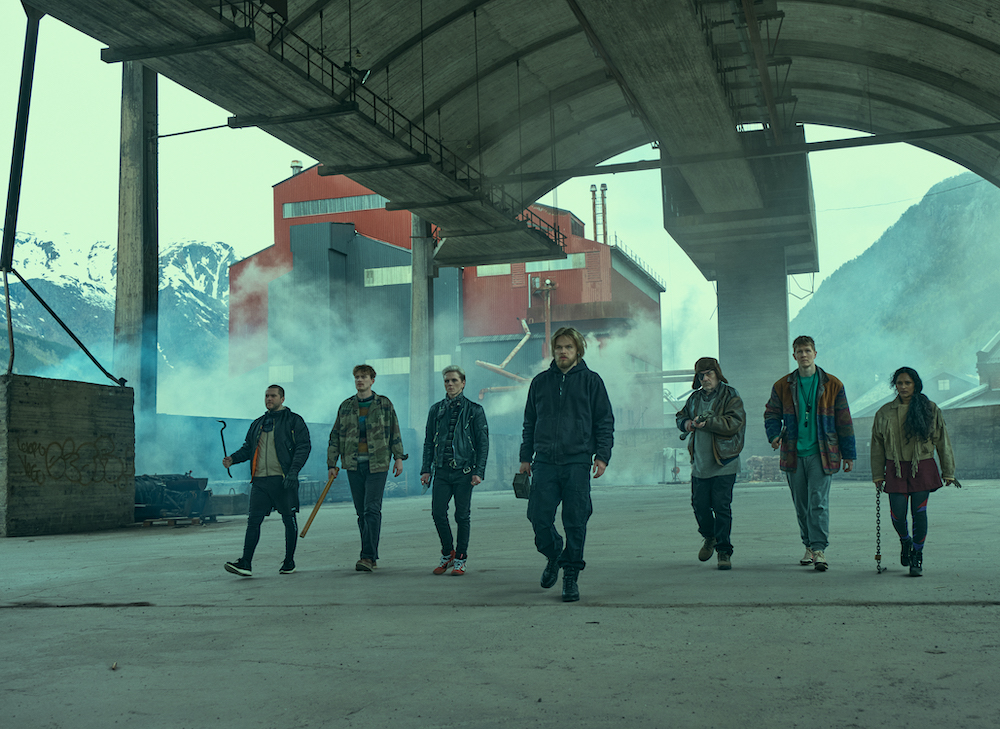
Following the events of the Season 2 finale, Magne and the Jutuls come to an understanding. The Jutuls agree to stay away from Magne and his family, especially Laurits, whom they consider a traitor to the Giants. In return, Magne has to keep the hammer aside for good. Magne doesn’t know that Laurits made a deal with Ran and Fjor. In return for not killing him, Laurits offers them Little O, his monster, i.e., the Midgard Serpent, the only creature that can kill Magne.
While the Jutuls wait for Little O to grow up enough to fight Thor, Magne feels drawn to the hammer. It calls out to him, and he uses it once, hoping no one would know about it. All this while, he had been trying to build a case against Jutul Industries. He knew he couldn’t go to war with them, so he tries to take them down in a legal battle. The Jutuls kill the only witness he secures. This angers Magne, and he confronts them with his hammer, realizing that the Giants are scared of it.
He realizes he doesn’t have to honor any deals and live in fear anymore because now, he is at the top of the food chain. Being in possession of the most powerful weapon in the world changes Magne. He starts carrying the hammer everywhere and uses it to intimidate the Giants into doing whatever he wants. This behavior does not sit well with anyone, and even his loved ones wonder if this new power has changed him for the worse.
Ragnarok Season 3 Ending: Does Ragnarok Happen?

After spending a lot of time drunk with power and alienating everyone because of it, Magne finally comes to his senses when Wotan shows him why he needed to fight the war in the first place. He is reminded of Isolde and the sense of justice that put him on this path. The rest of the gods, including Laurits, assemble to fight the final war, and Wotan recruits Jan and Kiwi as Baldar and Heimdall. Laurits is concerned that his boyfriend has been brought on board as Baldar, whose death kickstarts Ragnarok. However, Jan convinces him that this isn’t like the old days and they will change things, which means Jan doesn’t have to die.
Jan also plays a vital role in changing the mindset of the rest of the group. While everyone is busy discussing weapons and wars, he wonders why they must kill each other. Why can’t they find a middle ground and manage a truce with the Giants, who also don’t want Ragnarok and don’t want to die? Considering that the Gods outnumber them, the Giants will either have to fight the battle and die or accept the offer of peace and life.
When the time comes, everyone lays down their weapons. Magne gives up his hammer, while the Giants give up their old weapons, the only things that could kill a god. With the weapons of their destruction out of the way, no one has to fear anyone anymore, which means the need for war is removed. In Jutul Industries, Saxa assumes an equal position beside Fjor and takes the company on the path she paved before Fjor pushed her out. Instead of shutting out everyone and continuing to destroy the Earth with their harmful practices, she welcomes environmentalists and activists and turns the company on a more sustainable path.
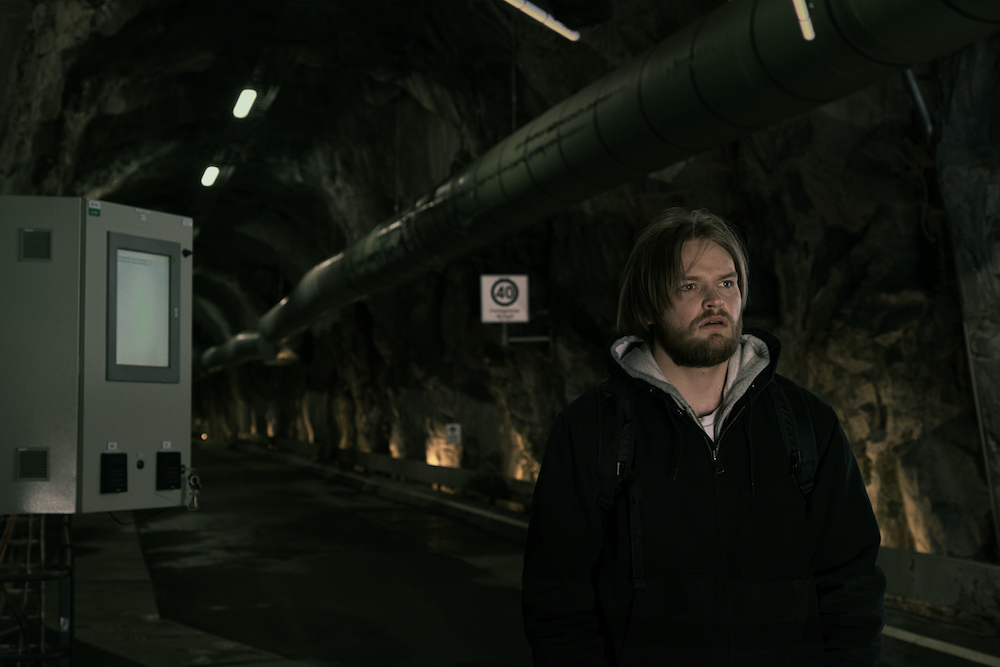
Everyone goes back to their normal lives. Instead of Ragnarok, Magne focuses on passing the exam. Once the school is over, Laurits moves out of the house, and Magne cleans up his room to get rid of old stuff he doesn’t need anymore. He comes across his old collection of Thor comics and starts reading them. He arrives at the section where Baldar dies and sees the exact thing happen during the graduation ceremony. As he looks at all the Gods and Giants around him, sitting happily at the ceremony, he sees them fighting in the war and dying one by one. Everyone except Laurits dies at the end, including Magne.
Magne is extremely rattled by this vision. Luckily, it remains a vision, and nothing untoward happens at the graduation ceremony. Jan, aka Baldar, doesn’t die, which doesn’t push Laurits, aka Loki, to lead the Giants into battle against the Gods and start Ragnarok. When he returns home, Magne dumps the Thor comics, accepting that this part of his life is over. Peace has been achieved without a war, so he shouldn’t seek one because it won’t end well for anyone. Instead of fantasizing about war, he accepts reality and enjoys the happy ending he has received with his loved one, with both Giants and Gods in harmony.
Did Magne Hallucinate Everything? Was He Really Thor?
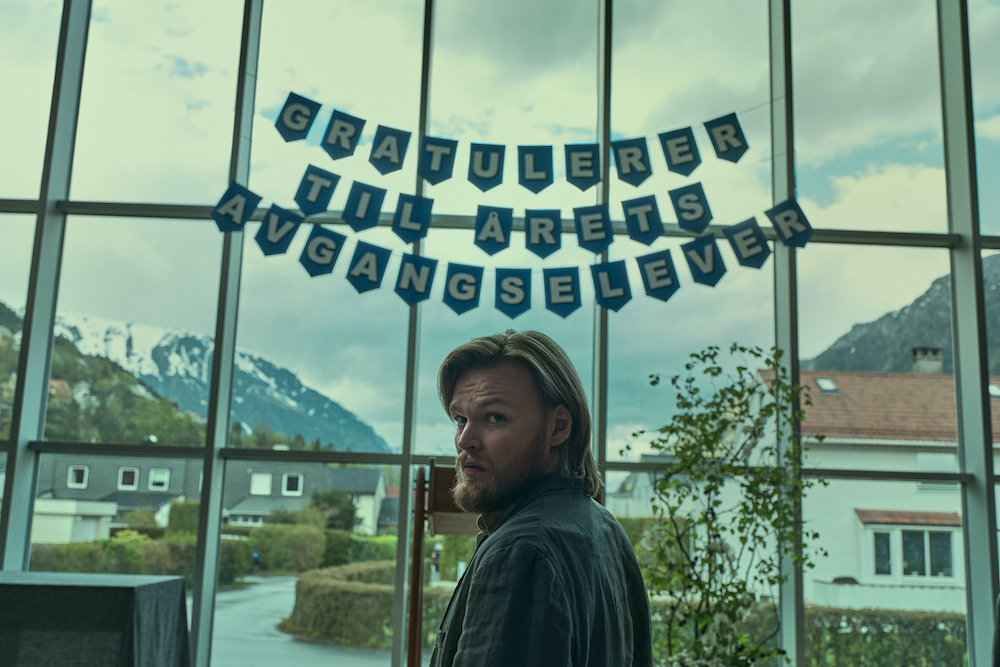
In the first season, the Netflix series promised us the titular Ragnarok, where the Gods and Giants clash in an epic battle. It develops the conflict for three seasons, also building the anticipation about the final battle, which the viewers expect to happen on a giant scale. However, anticlimactic as it might seem, the war that was promised doesn’t happen. Instead of fighting and killing each other, the Gods and Giants find a common ground where they lay down their arms and agree on a few terms that ensure everyone’s survival. Had the show ended on this note, it probably would have disappointed the audience. To prevent that, the show’s creators saw an opportunity that not only delivers Ragnarok but also creates a much more intriguing ending that neither the war nor the peace could have delivered.
It’s clear that the war doesn’t happen. Ragnarok doesn’t come to pass, the world doesn’t end, and everyone survives. The whole war sequence, starting from Jan’s accidental death to Magne’s death following his final fight with the Midgard Serpent, takes place inside Magne’s head, and he sees it all unfold just like it did in the Thor comics he’d read as a child. But this raises a question. If the war happened in Magne’s head, what else did he imagine? Was the whole plot with the Gods and Giants a part of his imagination, something that he believed was real after he read it in the comics? Was any of it ever real? Was Magne ever really Thor?
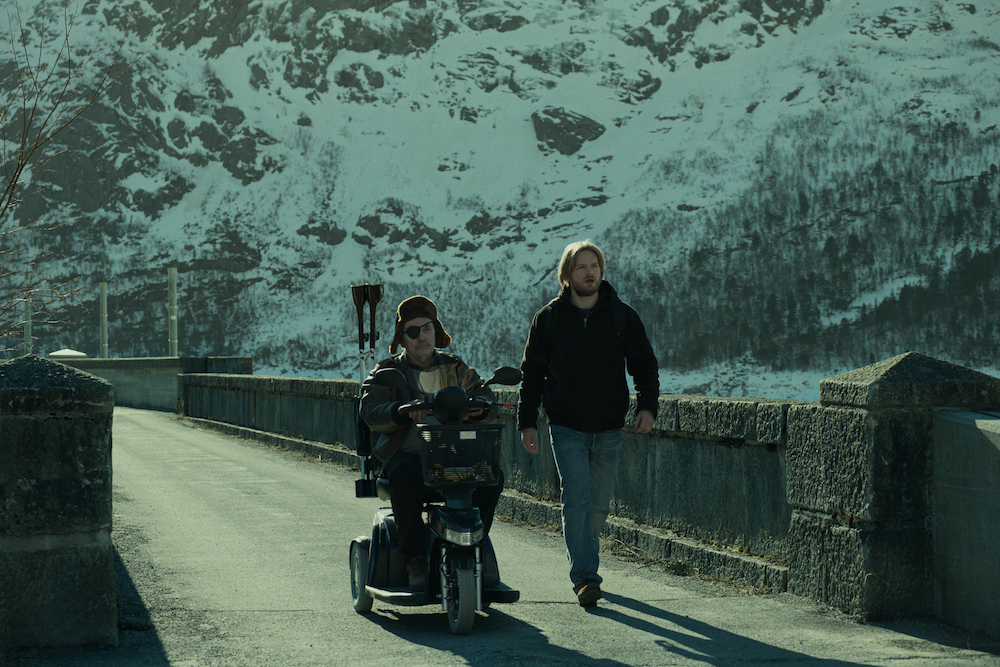
Going back to the first season of the show, there was a time when Magne went for a psychological evaluation. This was after Isolde’s death, following which his powers started to show, and he became invested in Norse mythology. His mother tried to convince him that Thor, the Gods, and the Giants were part of a story. His evaluation revealed him to be schizophrenic. All these things come back to Magne in the final episode of Season 3 as he imagines the war and realizes that everything in his imagination has been fed by the comics. Here’s what could have happened.
Magne had schizophrenia. After Isolde’s death, he looked for some sort of justice, even though her death was an accident, and found himself up against one of the biggest corporations in Norway, a Goliath to his David. A Giant that he, a mere teenager, was up against. Fed by the stories in the comics, Magne started seeing the Jutuls as literal Giants who needed to be defeated to bring order to the world. They had to be stopped from polluting and poisoning the rivers and other natural resources. But to defeat someone so powerful, Magne needed to be equally powerful. He needed to be a god, so he turned himself into Thor, the hero he read about in the comics.
What happened in the next three seasons could be chalked up to Magne’s hallucinations and his inability to separate reality from fiction. He tried to keep it a secret from his family, especially his mother, but in his mind, all the interactions with the Jutuls and anyone else he thought was a God or a Giant turned out the way we see them in the show. Because the war couldn’t happen in real life, his mind showed him the world where Giants and Gods made peace.

But that didn’t give him the closure he needed. So, he imagined the war in which all the Giants, except Laurits, are killed. Eventually, Thor dies, too. With that, the Thor that Magne imagined himself to be is also gone, and he finally lets go of the made-up world he had been living in. In the end, he comes back to reality and sees Isolde disappear as she smiles at him. In a way, this is his way of making peace with her death and the loss of his best friend.
While the “he imagined everything” plot seems intriguing, especially in the context of the final episode, it’s rather unlikely, considering that we follow multiple perspectives throughout the show, which confirms that not all of it could have been inside Magne’s head. The Giants and Gods were real, and all that happened over three seasons really did happen, except the final war, which Magne imagined. For him, it was the closure he needed to close that chapter of his life and move on. The hammer made him feel powerful, and he craved war, believing he could come out of it unscathed.
However, when he follows that train of thought, particularly in the context of the comics, he realizes that it would not have ended well for anyone. Peace is the only option that they have. It unsettled him because he thought peace would mean the Jutuls wouldn’t pay for killing Isolde. In the end, however, as he sits with his friends and sees her disappear, he lets go of her and the idea of going to war to avenge her friend. Hallucination or not, he is ready to move on from Ragnarok and get on with his life.
Read More: Shows Like Ragnarok

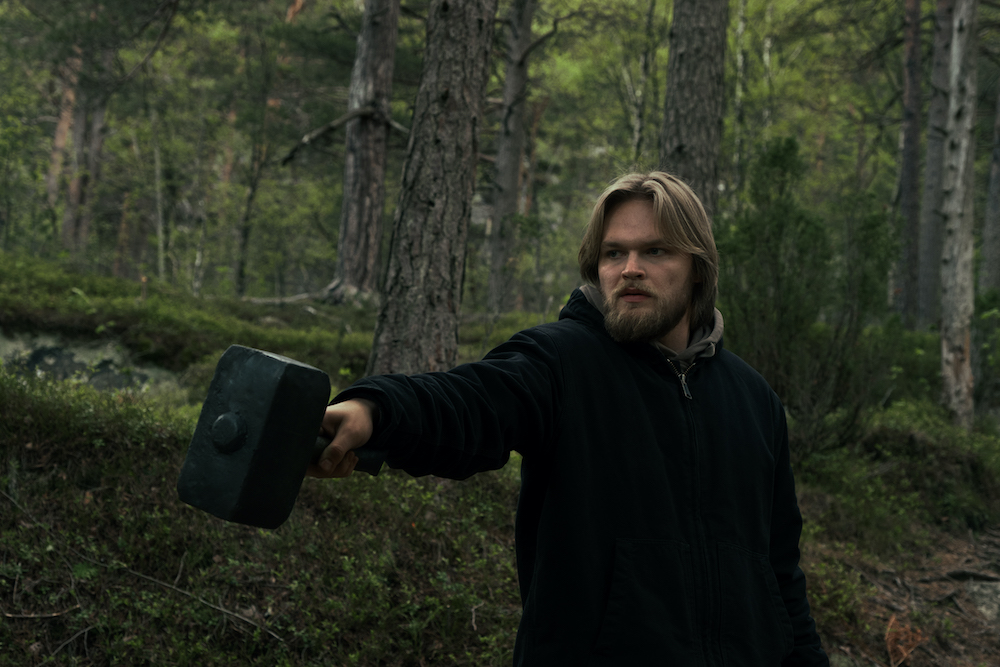
You must be logged in to post a comment.